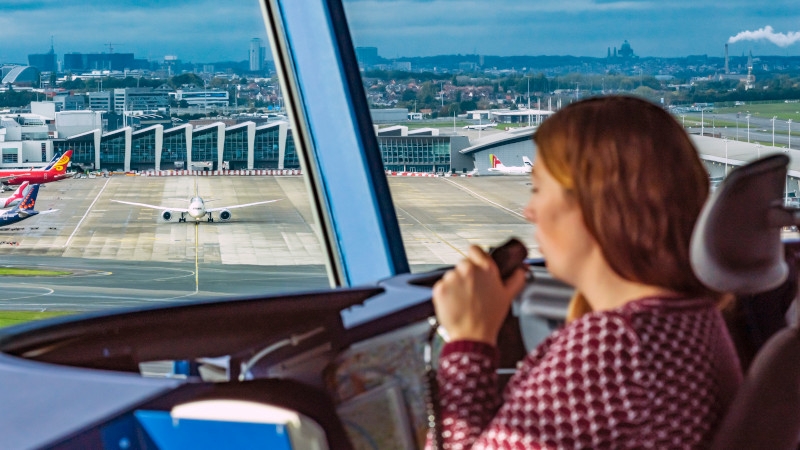How to become an air traffic controller?

Elimination race
Let's get straight to the point: every year only 15 to 25 starters remain out of several hundreds of applicants. The process is a real elimination race where you first enter an intensive 6-month selection process. What awaits you there?
The beast they call FEAST
Everyone starts with FEAST. The First European Air Traffic Controller Selection Test is a collection of computer tests that helps Air Navigation Service Providers (ANSPs) like skeyes to screen the most suitable candidates for a job as an air traffic controller. FEAST I is designed to measure your basic skills (logical thinking, memory test, planning, ...) while FEAST II requires you to perform several tasks simultaneously. It is next level multi-tasking which you will also have to deal with as an air traffic controller. Important to know is that prior knowledge of Air Traffic Control (ATC) is not specifically required. But of course, it always helps 😉
The P word
"If you have a passion, you can at least try. And with a passion for aviation, I am sure you will succeed". Those are not our words, but those of Eric De Causemacker - he has been an air traffic controller for more than 26 (!) years - about the start of a career as an air traffic controller. Your passion - a.k.a. your motivation - will be questioned in the next phase. And we immediately link an exercise in flight planning to it. To make it all concrete.
The right competencies
The next step in the process is a competency-based interview. This is primarily meant to see if you have the right skills to make it as an air traffic controller. Being able to handle stress, get along well with others in a team context and sufficient flexibility will certainly be covered.
Mentally and physically fit
As a final step in the process, you will be invited for a medical examination. As the medical requirements for air traffic controllers are very strict, we advise you to read this document carefully before signing up. Blood, blood pressure, lung capacity, nose-throat-ear, hearing, eyesight, etc. will be examined. You can contact your own doctor if you are unsure about your chances of passing this medical examination.
Heavy investment
You read it all: becoming an air traffic controller is a heavy investment. Both for yourself and for the organisation that guides you. skeyes has been training generations of air traffic controllers for decades and we continue to resolutely opt for quality.




